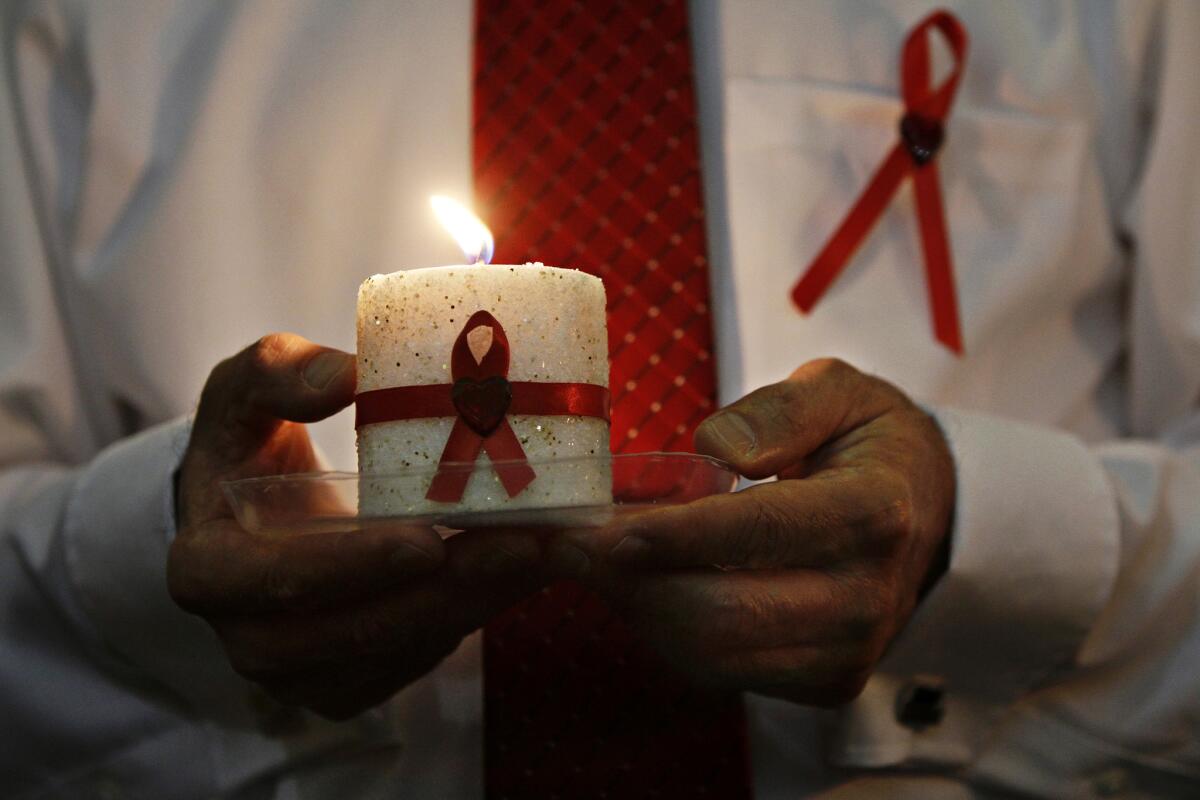Letters to the Editor: Don’t forget the ongoing HIV/AIDS crisis in COVID-19 death comparisons

To the editor: It is unfortunate that your graphic of U.S. deaths from war, disease and disasters neglected to include the last great pandemic that ravaged and is still ravaging the United States. HIV/AIDS has killed more than 700,000 people in the U.S. since 1981, a figure higher than the other tragedies represented in your chart.
While drugs are helping to control HIV/AIDS and to prevent some infections, there is still no cure. New infections occur every day, primarily because people do not change their behavior. This is a lesson for those protesting the behavioral changes required to stem the tidal wave of COVID-19.
As a former HIV/AIDS health educator, I wish you had included at least some of these facts in your graphic as a way to share the message that risky behaviors can lead to infection and even death.
Randolph Dreyer, Rancho Mission Viejo
..
To the editor: The graph lists U.S. deaths from wars, epidemics and disasters, with a comparison to present losses from COVID-19 that have already exceeded the American losses during the Vietnam War.
Surprisingly, omitted from the graph were losses from the fratricidal U.S. Civil War. In that war, at least 620,000 Americans died, more than from any other conflict in U.S. history — more than U.S. losses in World War I, World War II, the Korean War and the Vietnam War combined.
COVID-19 is definitely murderous, but at this time it is not as much as are we, the people.
Michael Wiener, Manhattan Beach
..
To the editor: Your chart of comparing the death toll of COVID-19 to past tragedies is misleading.
First, this is a health crisis, not a war or a natural disaster.
Second, you have to compare it over a certain time frame with other health deaths. Where are the annual deaths from the flu, opioids, hospital infections, obesity, cancer and other killers? Your numbers don’t lend that perspective.
Robert Bubnovich, Irvine
More to Read
A cure for the common opinion
Get thought-provoking perspectives with our weekly newsletter.
You may occasionally receive promotional content from the Los Angeles Times.










